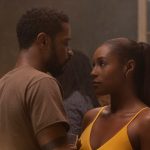The Joe Budden Podcast: When Toxic Crusaders Unite
It pains me to write this, and I don’t mean that hyperbolic. A certain discomfort that exists when you’re forced to critique anyone, let alone one of your favorite artists whose art form speaks to your consciousness. One who’s life experiences with women, mental health, and addiction tends to mirror your own. How do you write about someone whose articulate description of suicidal ideations puts words to thoughts you’ve had daily for 15 years, whose “baby mama” stabbed him too and y’all both went back for the love of your child. It’s not easy, so what you do is “start with love” and then get to the shits.
Joe Budden will go down as one of my favorite rap artists ever, his lyrical ability matched only by few. There’s the love. With that said, The Joe Budden Podcast is a cesspool filled with misogyny, misandry, and unhealed trauma, offered under the guise of entertainment.
I’ll admit, I’ve been an avid listener for 3 out of 5 years Joe, Rory, Mal, and Parks have been podding. There was a point where I’d tune in every Wednesday, and then Wednesday and Saturdays once they secured the Spotify “bag,” to hear their critique of pop culture, their current relationship issues, etc. However, over the last 6-8 months, my interest has waned dramatically, while my disdain for the content has risen.
Initially, I thought it was a decline in the content. How many times can you hear the themes of creatives getting paid, algorithms, record company shenanigans, who’s the most industry (Parks by the way), Mal’s intimacy issues (emotional blockage), and Joe’s favorite, “one day we’re going to have a discussion on <insert topic here>.” However, that wasn’t it. In deeper reflection, I recognize that it’s the exact material they’ve been sharing for years, that I’ve bellowed uncomfortable laughs too. Then clarity came, it wasn’t about what’s changed with them, but what’s changed with me.
As I continue to evolve, unlearning toxic ideals that have never served me, as does my sensitivity to women’s issues, my understanding of blackness, and increased awareness of my privilege, as a hetero-cis black male in America. The intersection of the aforementioned makes it challenging to listen to men who, in their late 20’s and 30’s continue to make the distinction between women as being either “bitches,” “hoes,” or women worthy of their respect as if we’re still unenlightened teenagers.
The difficulty is compounded when you listen to the quartet mock when their unhealthy ideas are challenged. They continue to reside in this hetero-cis male silo where their unhealthy thinking is rarely met with resistance, but embraced with cheers, gunshots, and retweets.
In a moment of introspection, which is often happening these days at the age of 36, I asked myself, “How can I truly be one of the millions of streams they receive weekly on their platform, which reinforces black tropes and problematic thinking globally?” The answer was simple, I can’t, not if my goals are to be an integral part of helping reconcile the black community, while simultaneously combatting white supremacy-patriarchal-capitalistic ideals, to have us thrive.
Black women are often on the receiving end of their vitriol, whether it’s those who challenge their way of thinking on platforms, those with whom they’ve had intimate relationships or those who make the blog headlines. They all find themselves under the ire of the foursome’s criticism, which often, if not always, begins with “Bitches.” The women who find themselves excluded from the groups’ verbal onslaught tend to be those with whom they have intimacy and/or intimate relationships with, namely Rory and Parks partners. Episode after episode, women are reduced to being nothing more than sexual conquests, who better not question the status of a relationship; otherwise, they’ll be relegated to an even lesser role and fodder for jokes. How can I look my daughter in the eyes and profess undying love for her, while laughing at jokes about other black women?
Men aren’t exempt from their wrath, as they’ll air out men who make poor decisions, violate street code, or who otherwise don’t keep up to the standards of what being a “real man” is supposed to be. Yet, we have no idea what their definition of a real man is. But we know who’s not, those who have varying sexual identities, evident in their frequent use of “pause” and the seldom-used, “no homo.” Enter misandry.
Decades ago, hip-hop culture made the term “pause” part of its lexicon, and it continues to thrive thanks to the JBP. The divisive term “pause” is subconsciously used to leave no doubts related to their masculinity and heterosexual lifestyle. It’s the culturally acceptable way to declare, “I’m not gay,” because honestly who’d want to be when you’re consistently at risk of at best, being the butt of jokes, or at worst facing some form of physical or emotional trauma. I’m no linguistic choir-boy by any stretch of the imagination, having used my fair share of homophobic terminology, primarily “pause” because the culture has made sexual innuendo jokes funny. Again, at whose expense? How can I be an ally when my actions continue to say otherwise? It’s the nuance of critical thinking that the fellas continue to miss, even when opportunities of introspection exist.
My critique of the misogyny, misogynoir, and misandry that exists on the JBP isn’t necessarily to cast aspersions on those men but to highlight areas where us hetero-cis men need to grow and heal, with urgency. Generations continue to follow behind us, hang on our every word, tune into all of our content. We must show our best selves, which may take critique, pushback on thoughts, and therapy. Yes, streams may be compromised, but for the good of the community. One day we’re going to have this conversation about integrity.




